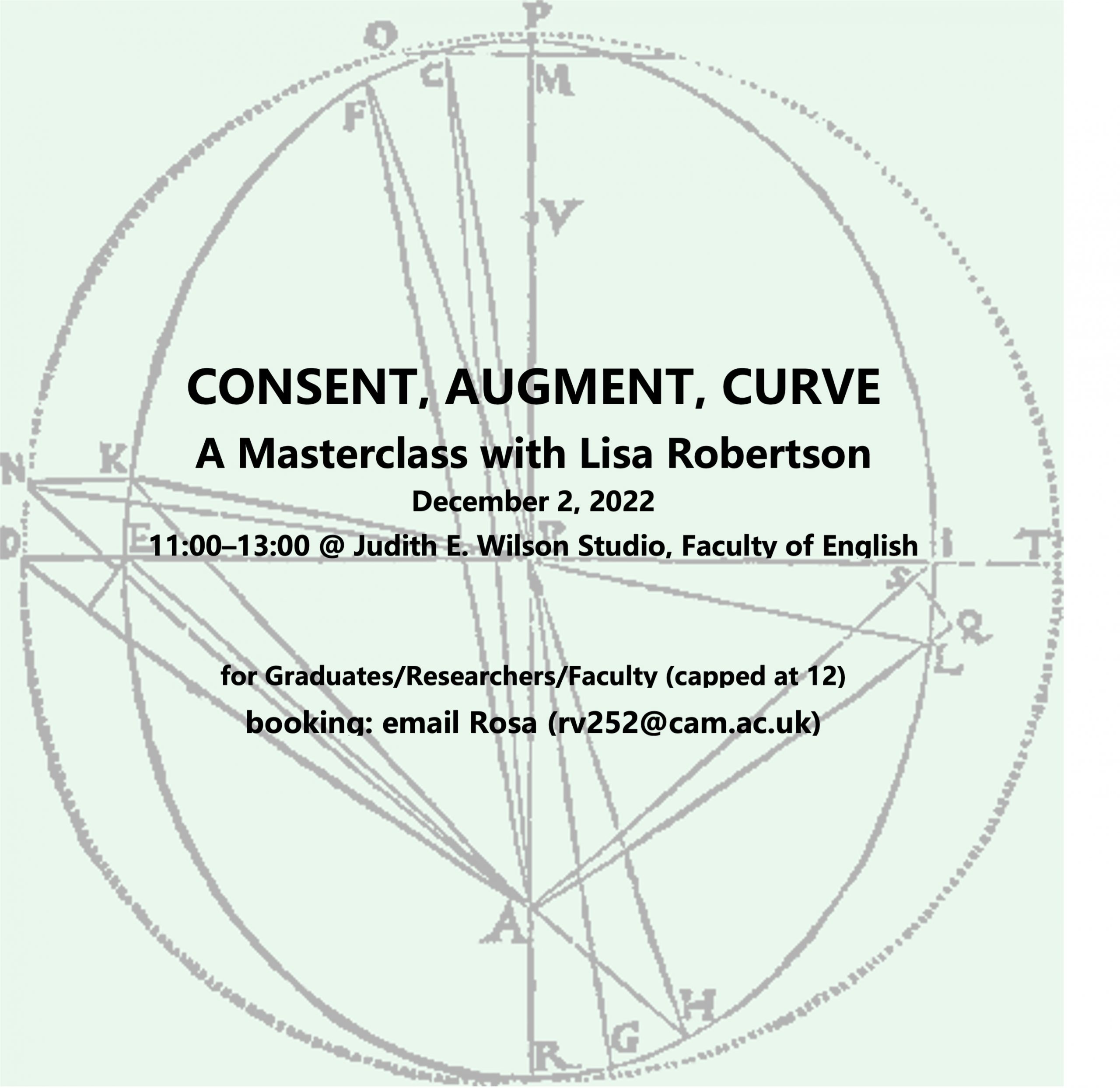I hope we can talk and write through the above ideas or actions—consent, augment, curve—by drawing gregariously deviant lines among some texts by Simone Weil, Edouard Glissant, Fred Moten, and Emile Benveniste.
This constellation came to me after I completed a small book on Simon Weil, which includes my translation of her 1942 essay “What the Occitan Inspiration Consists of”. In this essay, Weil cites Agathon’s speech from Plato’s Symposium, in order to open the idea that love is the practise of mutual consent, and that consent is what love shares with politics. By means of consent, love and just law remain the opposite of force she says. She was writing as a migrant refugee trying to leave Nazi occupied France. Now we read her in a different world, a world now not less fractured by force.
Moten, in Black and Blur, posits his wildly symphonic thinking on a statement by Glissant: “Consent not to be a single being.” Elsewhere, in his text “For Opacity”, Glissant states “Widespread consent to specific opacities is the most straightforward equivalent of nonbarbarism.” And Benveniste traces the institutional etymology of the concept of authorship to augmentation, and thence to life force, or oja.
I sense these texts speaking together. They share a baroque sensibility for the wild elliptical curve that has more than a single center, the Keplerian curve that “won’t stop, keeps getting deeper… this constant irruptive unfolding” in Moten’s terms.
I would like to see what happens if we think and write together for a morning in accordance with this irruptive curve, which is also the elliptical curvature of consent.
 Poet and art writer Lisa Robertson began publishing in the 90s in Vancouver. Her 13 books trouble the limits of genre— Debbie: An Epic, a feminist rereading of Virgil, shortlisted for the Governor General’s Award for poetry in 1997 and published in French translation in 2021; The Weather (2001), a long poem plundering the rhetoric of Romantic meteorology, now translated to French and Swedish; the fictoessays Occasional Works and Seven Walks from the Office for Soft Architecture (2003) amplify the urban history of Vancouver; Nilling essays a phenomenology of reading (2012); the bildungsroman The Baudelaire Fractal, shortlisted for the 2021 Governor General’s Award for Fiction; the recent Anemones: A Simone Weil Project, working with translation and annotation; and most recently, Boat (2022), an accruing long poem returned to once each decade over 20 years, which takes the form of indexical rereadings of an archive of notebook material, to construct slant paths through a life in thinking. Robertson lives in France, and is immersed in a long term study of troubadour poetics, wide rime.
Poet and art writer Lisa Robertson began publishing in the 90s in Vancouver. Her 13 books trouble the limits of genre— Debbie: An Epic, a feminist rereading of Virgil, shortlisted for the Governor General’s Award for poetry in 1997 and published in French translation in 2021; The Weather (2001), a long poem plundering the rhetoric of Romantic meteorology, now translated to French and Swedish; the fictoessays Occasional Works and Seven Walks from the Office for Soft Architecture (2003) amplify the urban history of Vancouver; Nilling essays a phenomenology of reading (2012); the bildungsroman The Baudelaire Fractal, shortlisted for the 2021 Governor General’s Award for Fiction; the recent Anemones: A Simone Weil Project, working with translation and annotation; and most recently, Boat (2022), an accruing long poem returned to once each decade over 20 years, which takes the form of indexical rereadings of an archive of notebook material, to construct slant paths through a life in thinking. Robertson lives in France, and is immersed in a long term study of troubadour poetics, wide rime.
Please do not attend this event if you are experiencing any cold-like symptoms.
Although the Faculty of English building has step-free access, please be aware that the Judith E Wilson Drama Studio is located in the basement of the building. It is accessible via the Faculty lift or via a stairwell.

